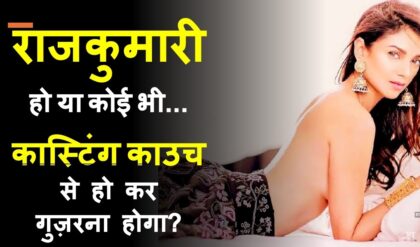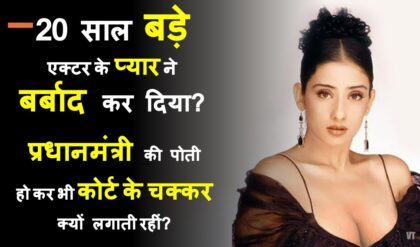In the world of Indian entertainment, few figures are as prominent as Kapil Sharma and Mukesh Khanna. While both have made significant contributions to the industry in their respective realms, a recent confrontation between the two has sparked a heated debate among fans and followers. Mukesh Khanna, the actor known for his iconic role as Bhishma in the television adaptation of Mahabharata, expressed his outrage at an action taken by Kapil Sharma, a comedian and actor celebrated for his humor and comedic timing. The fallout from this incident has not only highlighted the rivalry between the two but has also ignited discussions about the nature of comedy and its impact on public figures.
The incident that triggered Mukesh Khanna’s ire reportedly occurred during an episode of “The Kapil Sharma Show,” where Kapil made a joke that Khanna found offensive. Although the exact details of the joke remain unclear, Khanna’s reaction was swift and vehement. In interviews following the incident, he did not hold back in expressing his discontent, labeling Kapil as the “worst comedian” and criticizing his approach to humor. Khanna’s remarks have since sparked a backlash from Kapil’s fans, who have taken to social media to defend their favorite comedian, arguing that humor is subjective and that comedians often push boundaries to elicit laughter.
Mukesh Khanna’s criticisms highlight a broader discourse surrounding comedy in contemporary society. As a veteran actor, Khanna has been a part of the industry for decades and has witnessed the evolution of entertainment firsthand. His comments reflect a generational divide in comedy styles; while older generations often prefer humor that aligns with traditional values, younger audiences tend to embrace edgier, more irreverent forms of comedy. This clash between differing comedic sensibilities raises questions about the role of comedians in society and their responsibility towards their audience.
Kapil Sharma, on the other hand, has built a reputation for his relatable humor, often drawing from everyday life experiences. His show has been a platform for many aspiring comedians and actors, providing them with exposure and opportunities to showcase their skills. Kapil’s comedic style, characterized by its lightheartedness and charm, has resonated with millions, making him one of the most beloved figures in Indian entertainment. However, the incident with Mukesh Khanna has put his comedic approach under scrutiny, forcing him to confront the possibility that not everyone appreciates his brand of humor.
In the aftermath of Khanna’s comments, Kapil Sharma remained relatively silent, choosing not to directly respond to the accusations. This restraint may have been a strategic decision, as engaging in a public feud could potentially alienate his audience. Instead, Kapil has continued to focus on his work, maintaining his usual jovial demeanor in subsequent episodes of his show. His ability to navigate controversy with grace is one of the reasons he has remained a prominent figure in the industry for so long. However, the incident with Khanna has undeniably cast a shadow over his recent endeavors.
The public’s reaction to the feud has been mixed. While many fans rallied behind Kapil, praising his talent and humor, others sided with Mukesh Khanna, arguing that comedians should be more mindful of their content, especially when it comes to sensitive topics. This division among viewers underscores the complexities of comedy in a diverse society where opinions and values vary widely. The incident serves as a reminder that humor can be a double-edged sword, capable of both entertaining and offending.
Social media has played a significant role in amplifying the discussion surrounding the feud. Fans of both Kapil and Mukesh Khanna have taken to various platforms to voice their opinions, leading to trending hashtags and heated debates. Memes, gifs, and commentary have circulated widely, reflecting the public’s fascination with celebrity conflicts. In today’s digital age, even minor disputes can quickly escalate into major controversies, drawing in audiences from all walks of life. This phenomenon illustrates the power of social media in shaping public discourse and influencing perceptions of celebrities.
Amid the chaos, it is essential to acknowledge the impact of such controversies on the individuals involved. For Mukesh Khanna, his comments may have been an attempt to uphold the values he believes in, but they also expose him to criticism from younger audiences who view his perspective as outdated. On the other hand, Kapil Sharma’s reputation as a comedian may be tested in light of this incident, as he must navigate the delicate balance between humor and sensitivity in his future performances. The pressure on comedians to adapt to evolving societal norms can be immense, and Kapil’s ability to remain relevant hinges on his capacity to understand and respond to audience feedback.
The incident serves as a crucial reminder of the responsibilities that come with being in the public eye. Both Kapil Sharma and Mukesh Khanna are influential figures, and their words carry weight among their followers. As such, they must be cognizant of the impact their statements and actions can have on their respective audiences. The entertainment industry is continuously evolving, and the expectations placed on comedians, actors, and public figures are increasingly scrutinized. This evolution necessitates a dialogue between
Watch video:





